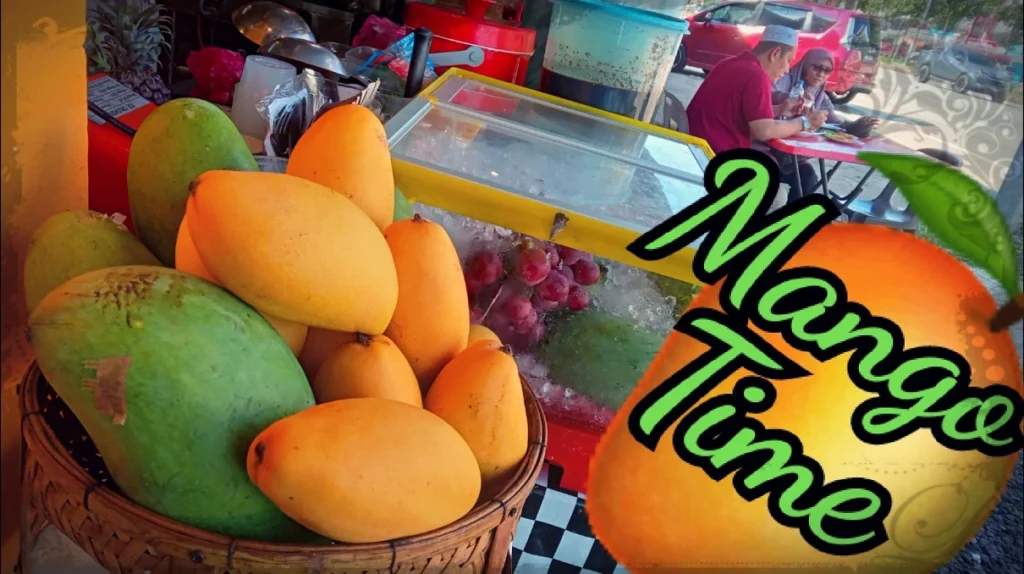Within an hour of arriving in Busan, South Korea, after seven weeks in Japan, two experiences felt stark. I heard loud music from a passing car – something that never happened in Japan. And someone jaywalked! Hardly ever saw that in Japan, either.
That got me thinking about the two largest factors that make Japan different from other countries we’ve traveled to so far: safety and quiet.
Safety first
I’ve never been to a country where safety mattered more than almost anything else. Maybe that’s because the Japanese have suffered some horrible disasters — nuclear and natural.
Natural disasters
During our seven-week visit, Japan issued its first-ever warning about a possible ‘mega quake’ as more likely to happen (but not imminent) following an earthquake on the Nankai Trough. People stocked up on supplies, the bullet trains (Shinkansen) reduced their speeds for a full week, and some roadways were even closed. The government warned people to be alert and ready to evacuate, but not actually do so.
Some people think that type of alert is overkill, but I get it. Consider the 9.0 Tohoku quake that caused the Fukushima nuclear disaster. Or the 2024 New Year’s Day 7.5 quake in Honshu that killed hundreds and left thousands displaced long term.
The ‘safety first’ mindset is on display at The Great Hanshin-Awaji Earthquake Memorial Museum in Kobe. It’s run by the Disaster Reduction and Human Innovation Institution. It features the 1995 earthquake in graphic displays – and then uses that to focus on preparing for the next one. Extensive exhibits show what to keep in your home.
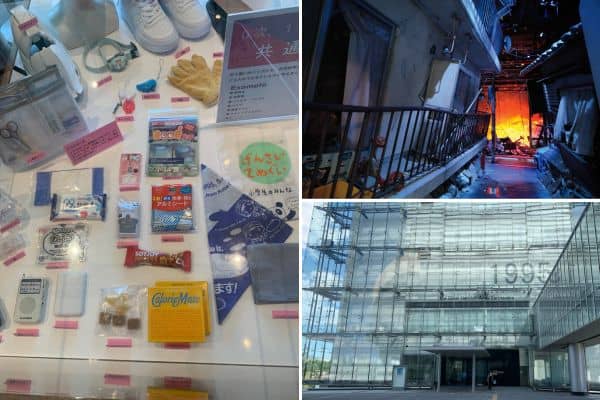
The mega quake never materialized during our stay, thankfully, but Typhoon Shanshan did. Forecasters had trouble predicting this one’s path. Store shelves were bare, ferries and flights were canceled, shops and schools and tourist sites all closed down. (Theo wrote a post on the typhoon.)
Natural concerns
In the absence of major natural and nuclear disasters, Japanese are still highly focused on safety.
At Mt. Fuji, Theo readied two walking sticks for us that he found in a nearby wooded area. But when we reached the entrance to climb the volcano, guards wouldn’t let us through with carved sticks. We thought it was because they wanted to make money and force us to buy walking sticks. There probably is some truth to that. However, I bet safety is the bigger reason.
The allowable, mass produced walking sticks you can buy all have dull, flat edges. Our walking sticks had points. On my decent, I slipped on gravel and my chest hit the top of my stick pretty hard. In fact, I could see where a jagged point could seriously injure a hiker if a fall atop the stick was hard enough – especially in an eye.
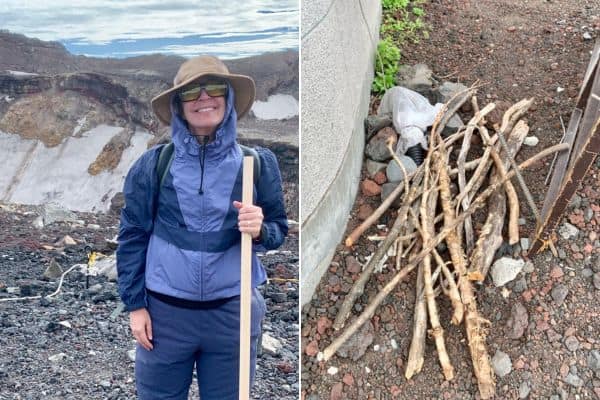
A homemade walking stick could break at the worst possible time when a hiker relied on it. The allowable walking sticks are thick and sturdy, and not likely to snap.
Pedestrian Theo pleaded to cross streets when no cars were coming as I almost always waited for the green light. It’s odd how the Japanese don’t jaywalk when the street is clear. I asked a local man why. Apparently it’s a mix of Shintoism’s belief that gods will keep you safe if you obey rules, and also: police will fine you.
Mario brothers & safety signs
Jokester Theo called all of the safety workers at construction sites and queues at attractions “Mario Brothers.” Much like in the Nintendo video games, these men appeared like nonstop action figures directing traffic and safeguarding sites donned in every safety regalia imaginable.
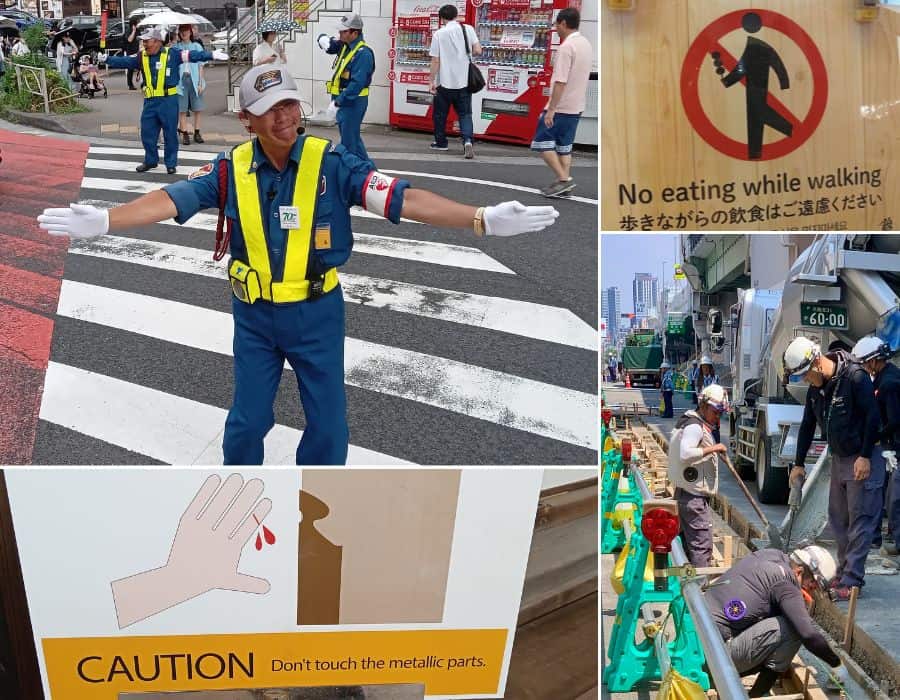
Safety signs warning of various possible dangers were ubiquitous. Don’t lean on this, don’t walk on that, how to use the toilet, how to ride an escalator, etc. This is the exact opposite of places like Mexico or India.
Quiet always
In traffic, there are no horns. Bicyclists don’t ring their bells. (This irked me — then why have them?!) People talk softly. Any American making jokes and laughing out loud – or simply talking in normal tones by American standards – can stir up the tranquil atmosphere and draw stares.
People silently bow to each other as a show of respect. Sometimes a person will silently bow repeatedly because they are polite. People are always polite – even with they cheer!
2 exceptions to quiet (almost) always
When Japanese get excited about sports, quiet is broken — in an organized manner. Take baseball games, for example. Trumpets and drums accompany fans cheering when their team at bat. When their team is not at bat, they don’t cheer – or jeer.
A sumo wrestling match blared out on a television in a small eatery I picked out for us to have dinner. Normally restaurants are quiet places with some loud noodle slurping, which is acceptable. But this sumo match on the tube was blaring. You can just make out the TV in the top picture below:
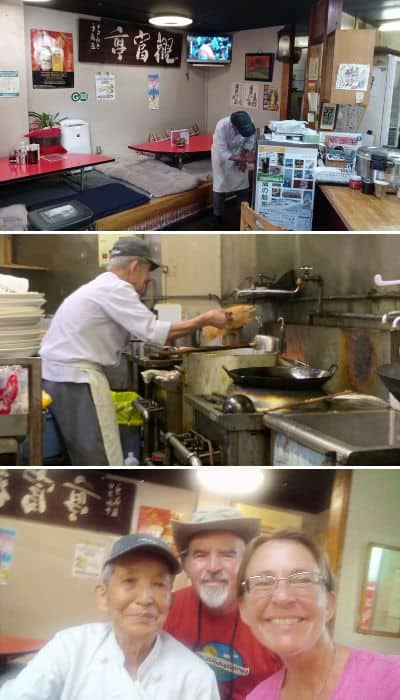
That small businessman made me a vegetarian fried rice dish that was probably the tastiest I’d had in a long time. The whole experience was full flavor Japan. You won’t find any more noise than that in most restaurants.
Immaculate bathrooms, zero litter
Theo wrote about the well-appointed, spotless Japanese bathrooms in a previous post, and how trash is handled. These other points add to the story of how Japan feels safety focused, reserved and somewhat sanitized to global vagabond Americans like us.
Check out Theo’s “10 Tokyo surprises” for more on what makes Japan different. And those ’10 surprises’ are also valid in the other Japanese locations we visited: Fujiguchiko, Kyoto, Osaka, Nara, Kobe, Himeji, Hiroshima, Miyajima, Fukuoka.
Don’t miss Japan on your own world travels. It’s a beautiful country unlike any other. I respect – and admire – its reserved nature.
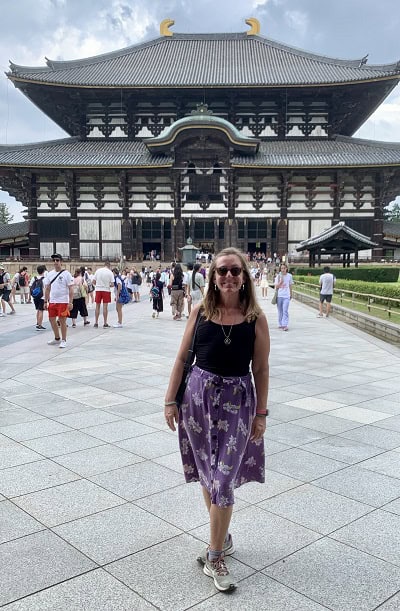
Life is Now!
Thanks for reading, “Safety first & quiet always in Japan.”
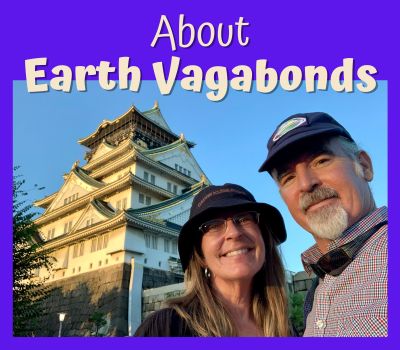
Recent posts:

Boycotts of American brands & uncomfortable questions for us travelers
Ellen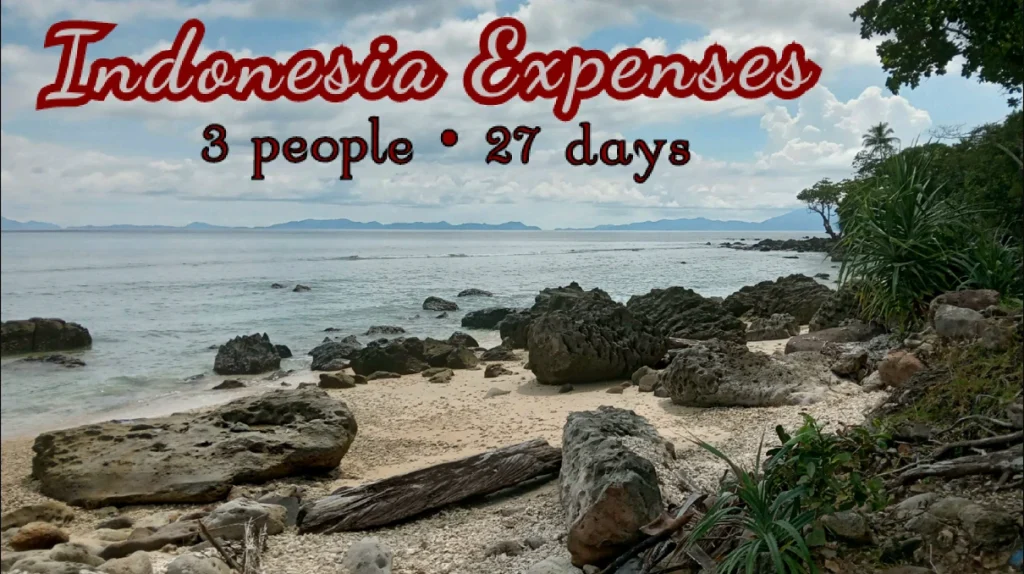
Indonesia expenses: Sumatra spending summary
Theo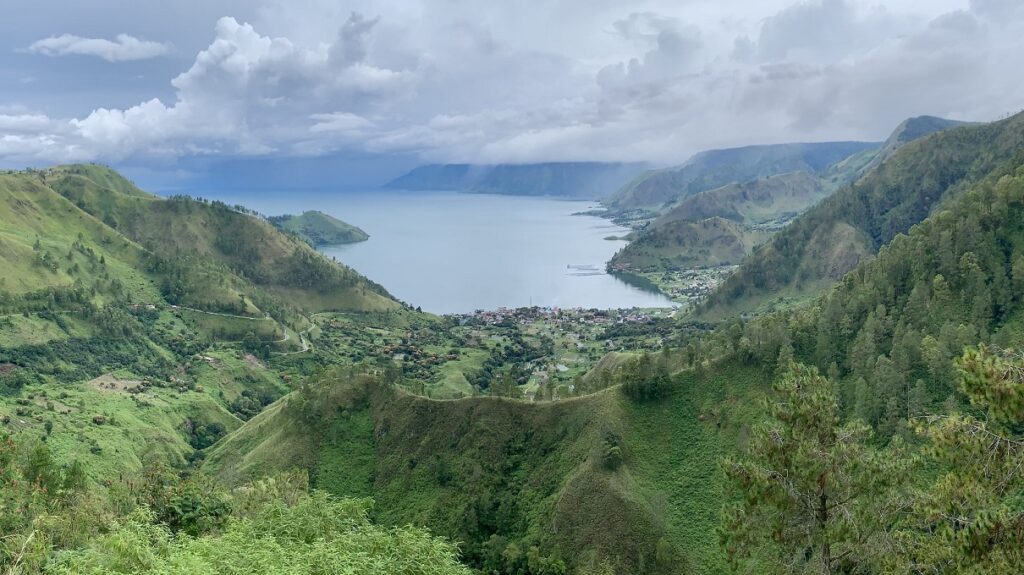
Escape from reality: 5 Breathtaking views on a budget in Sumatra
Ellen
Extraordinary two-day orangutan trek in Sumatra
Ellen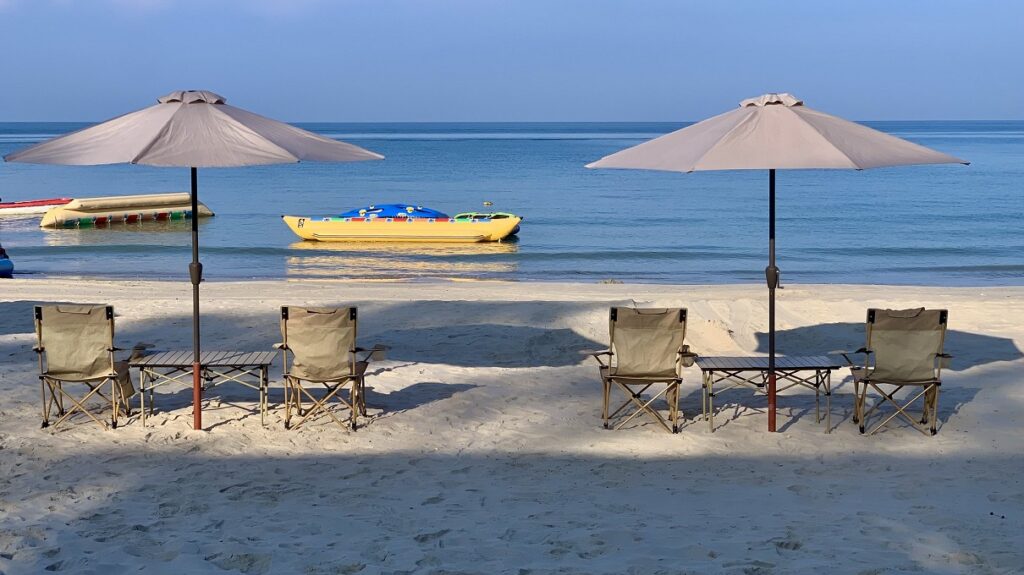
Port Dickson is quiet and peaceful for budget slow travelers
Ellen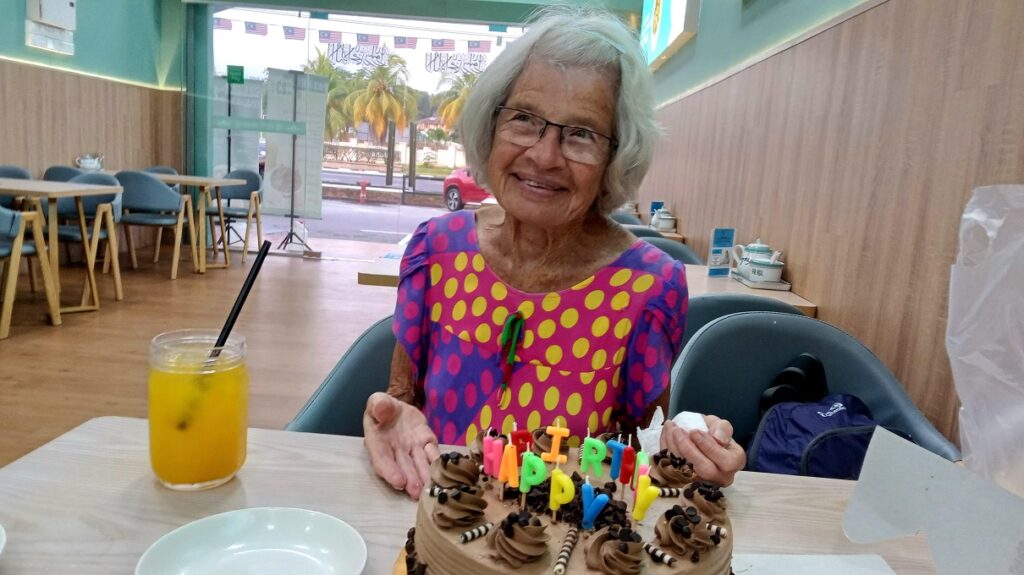
“Happy Birthday, Mom!”
Theo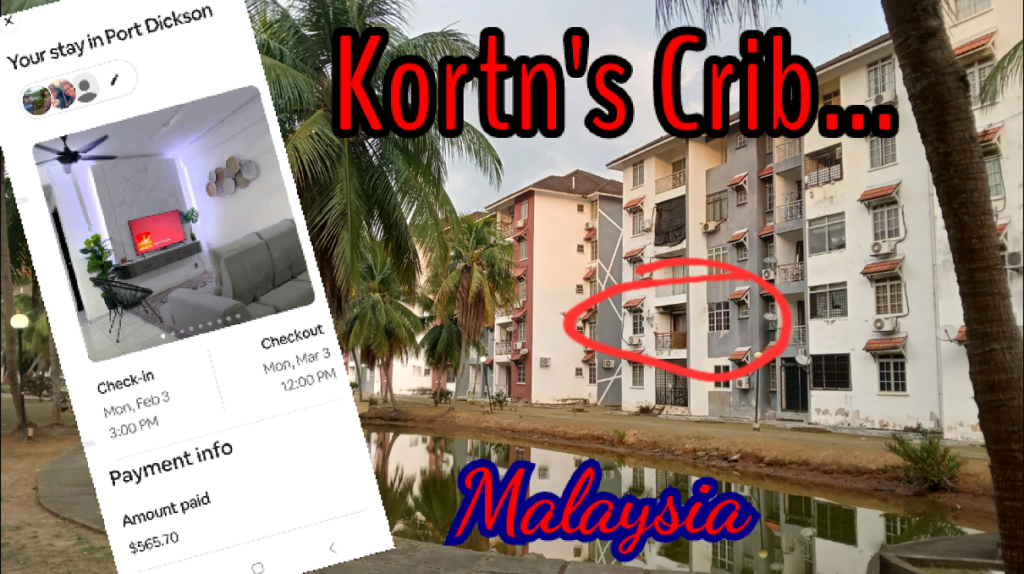
Kortn’s Crib: Video tour of our Airbnb in Port Dickson, Malaysia
Theo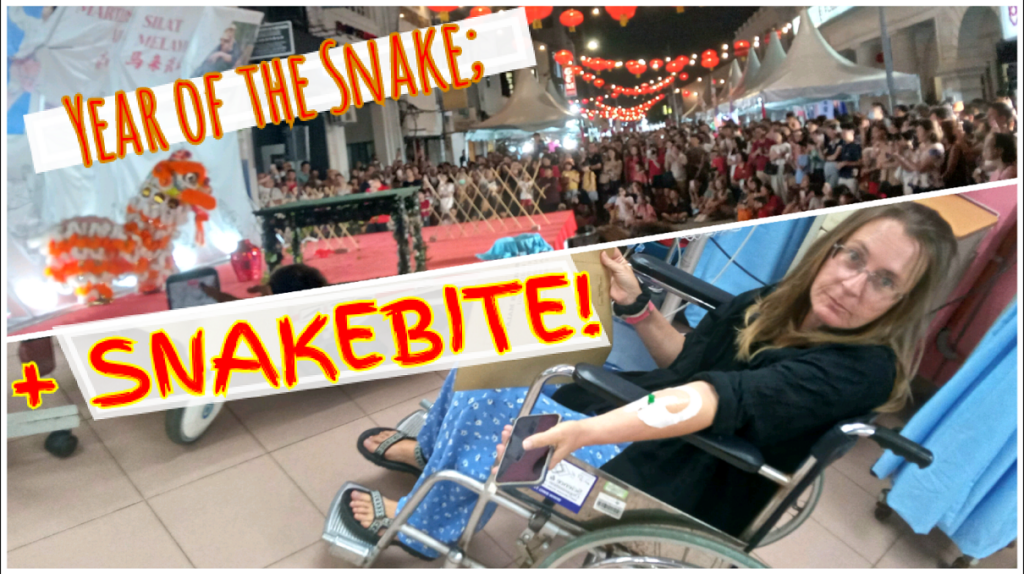
2025 – Year of the Snake bite
Theo


